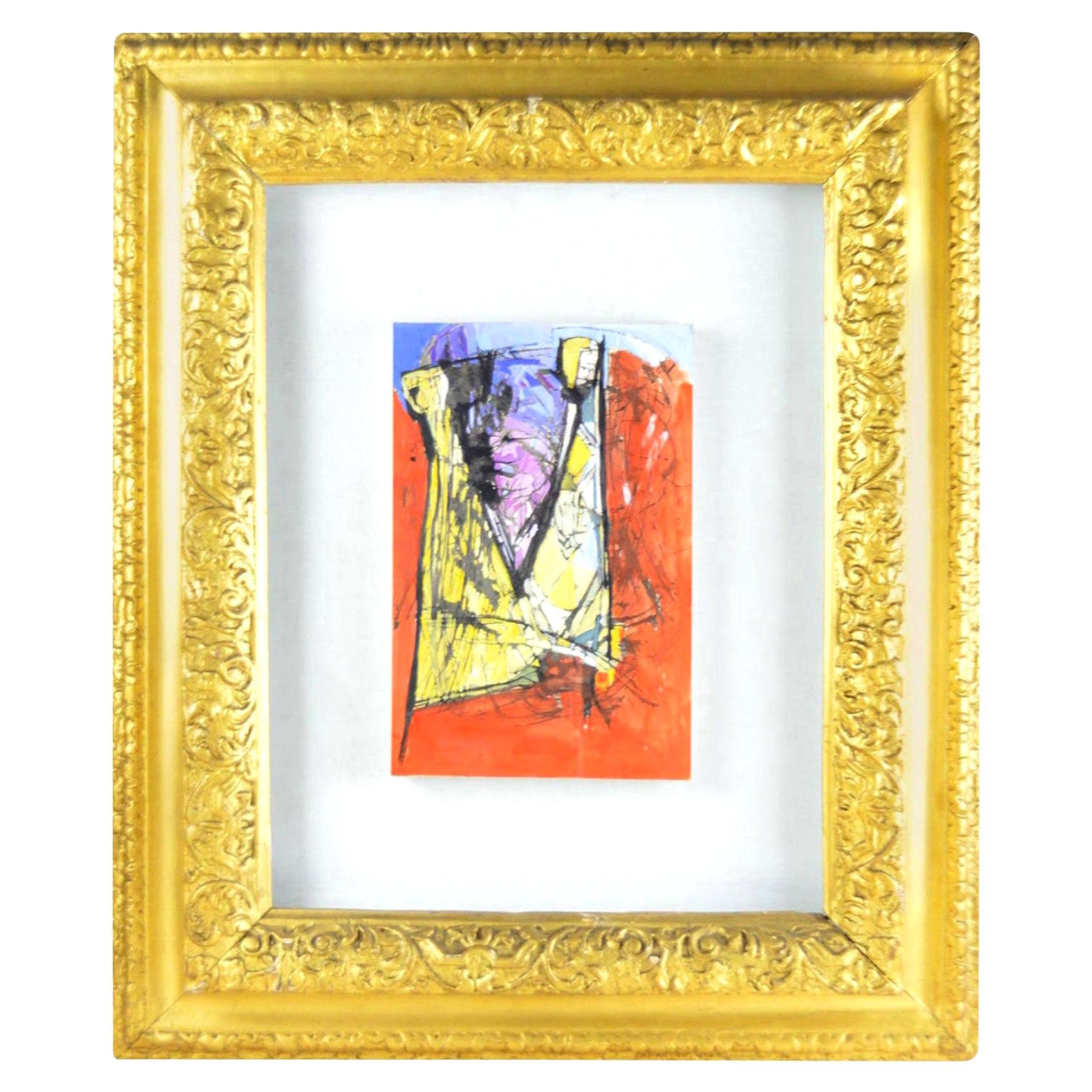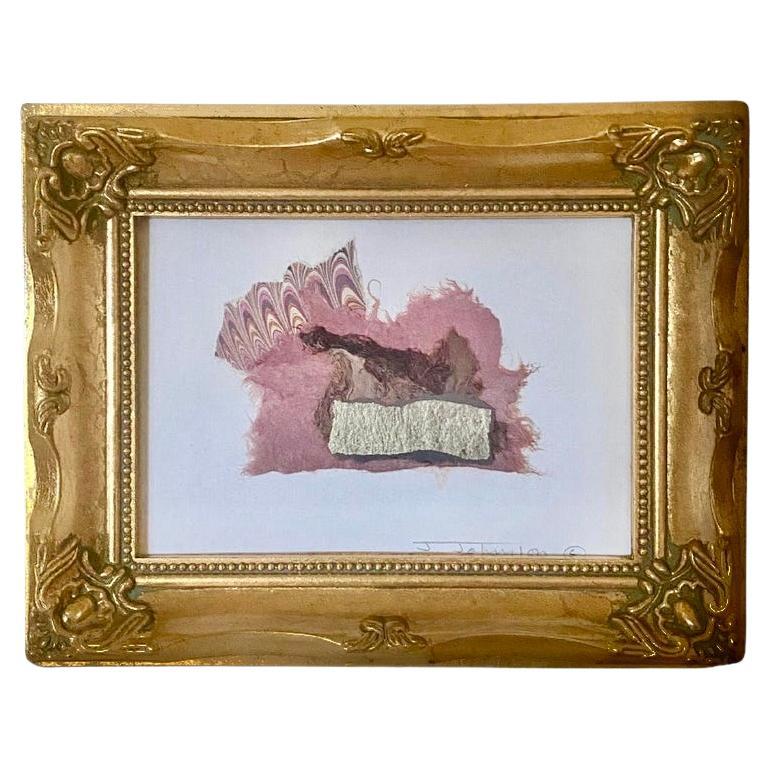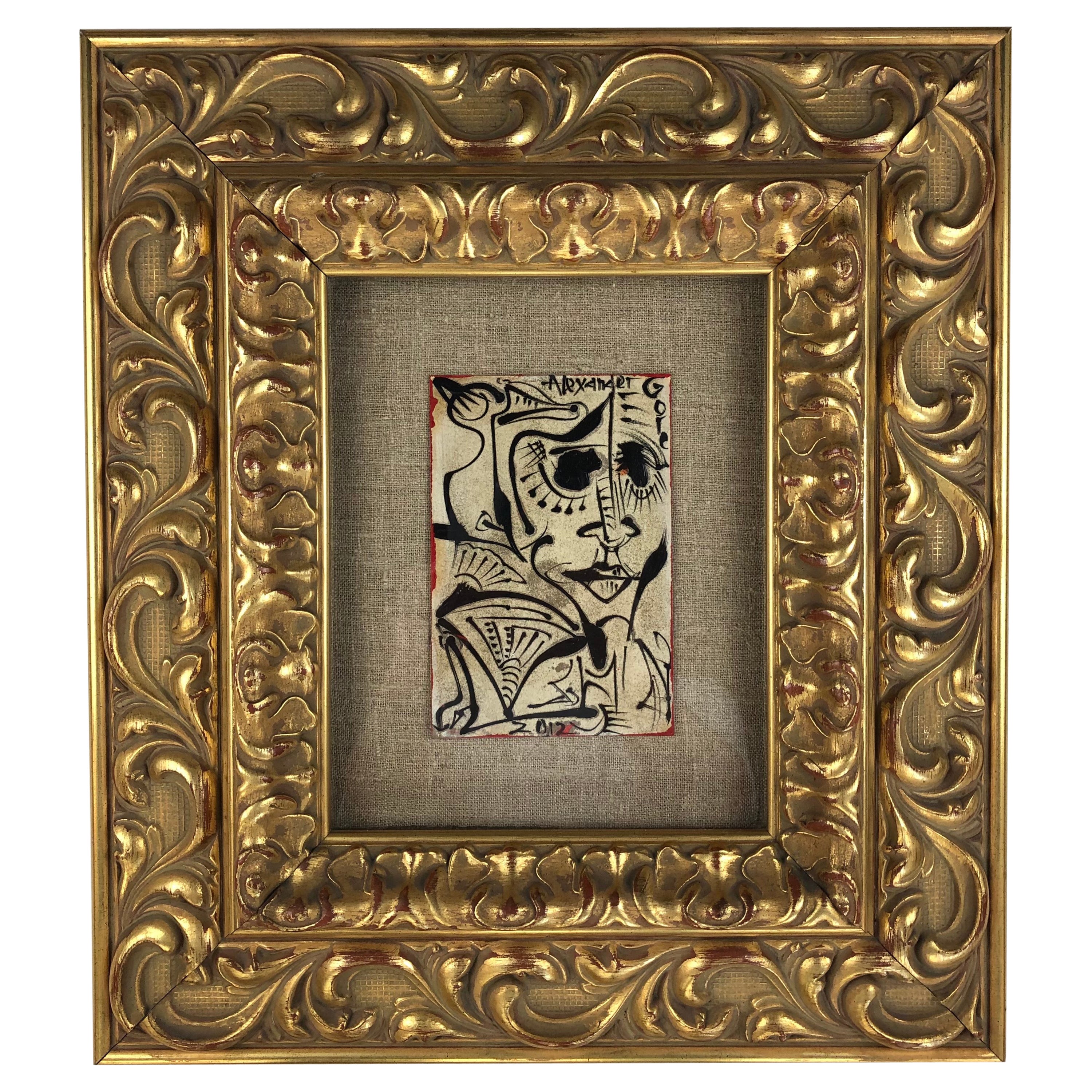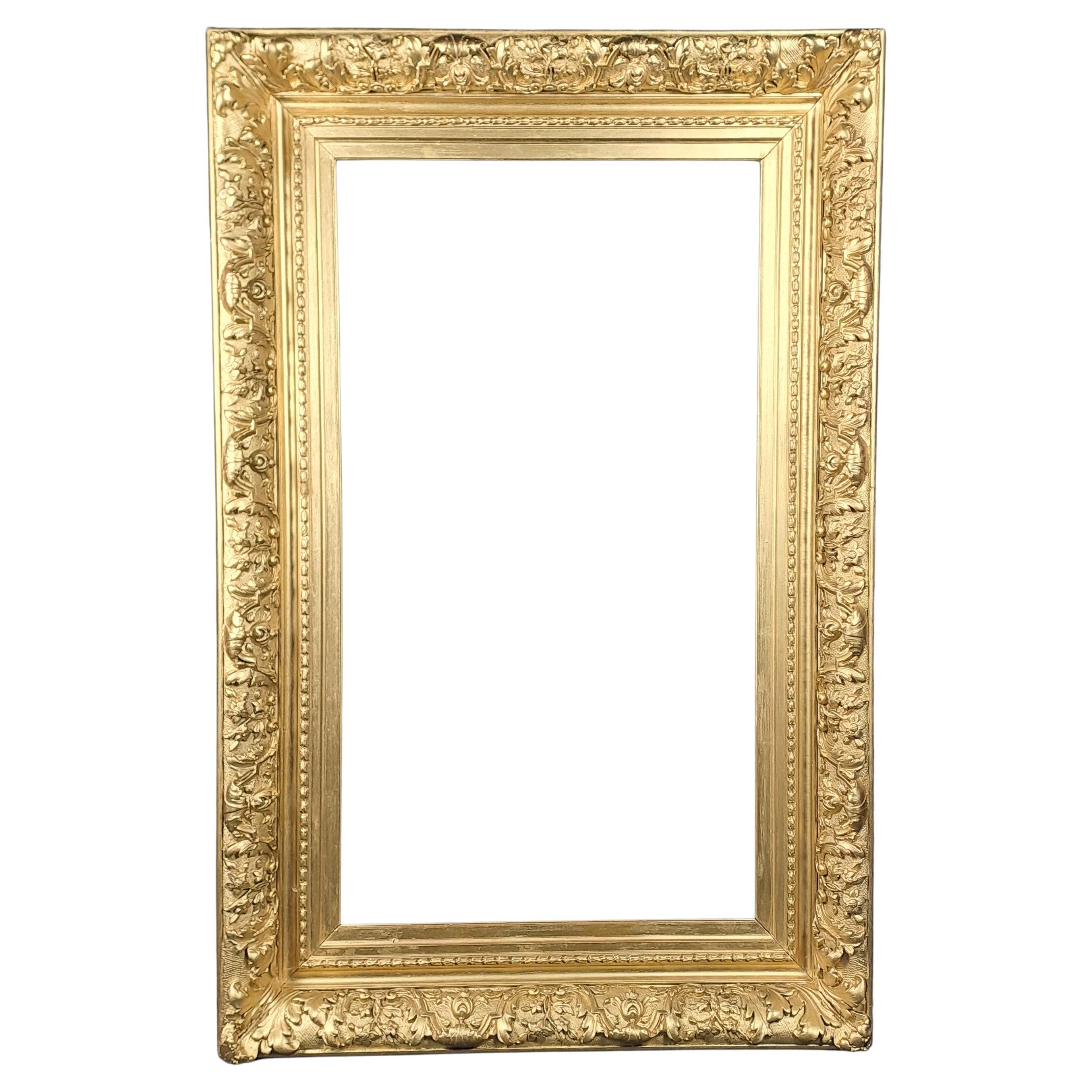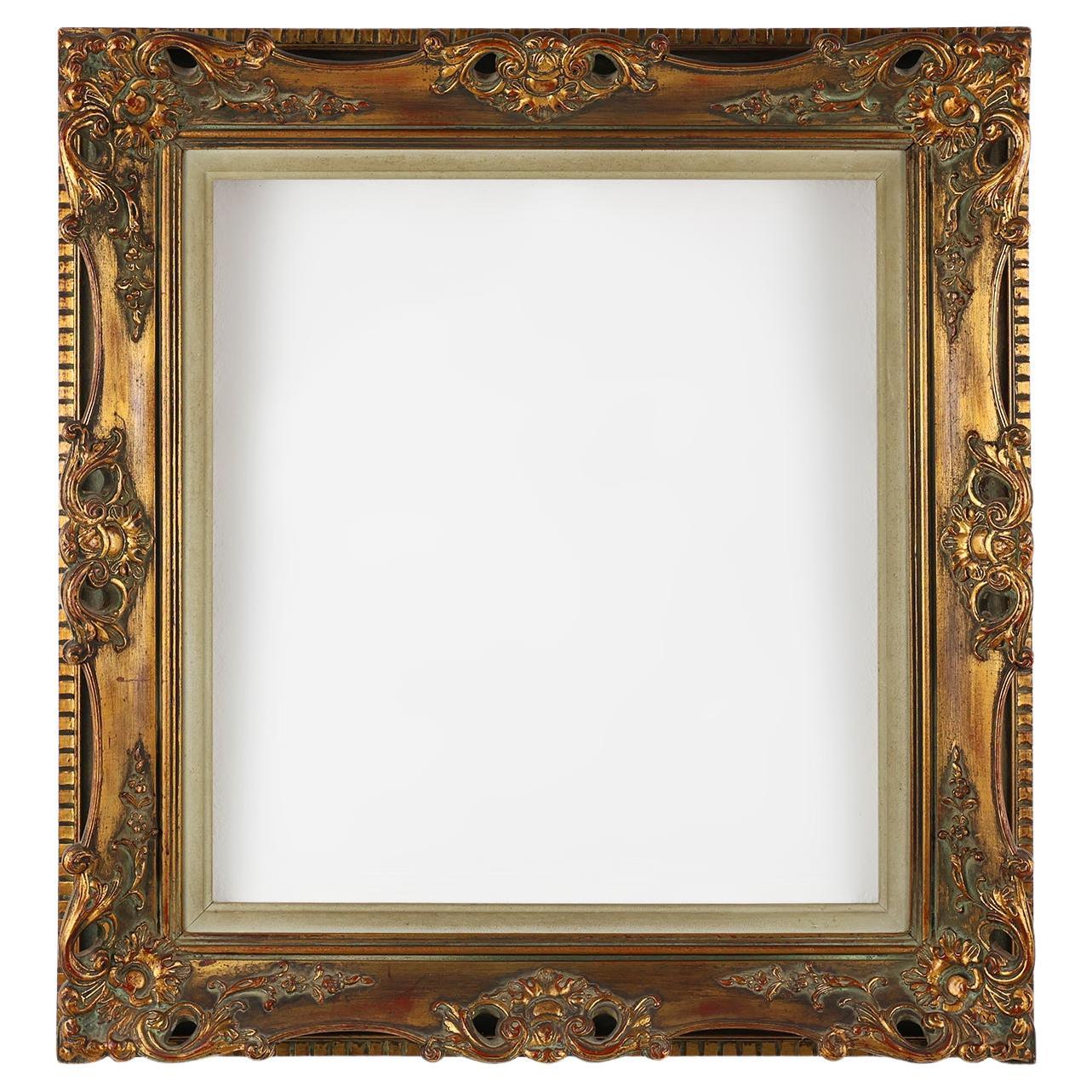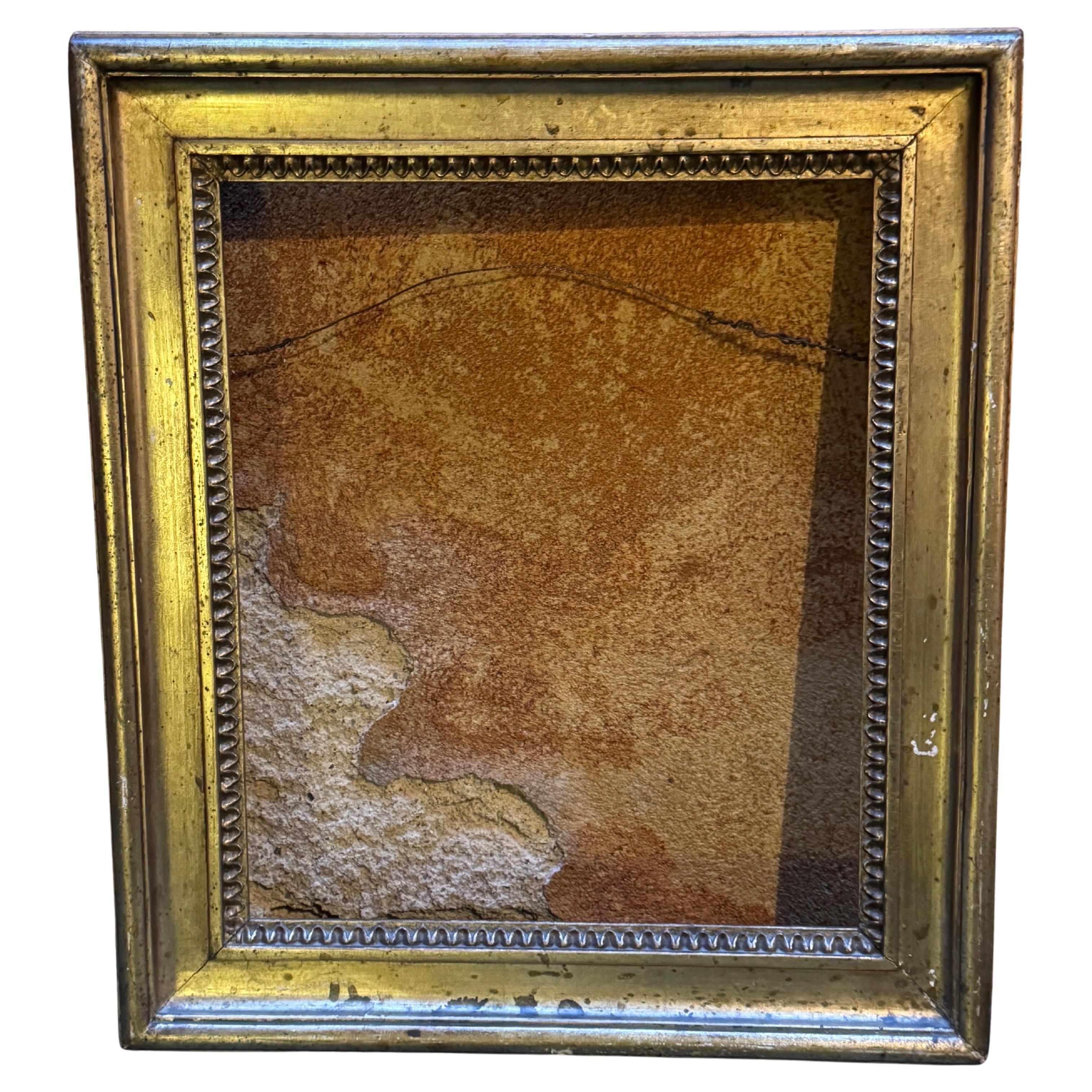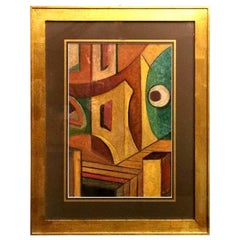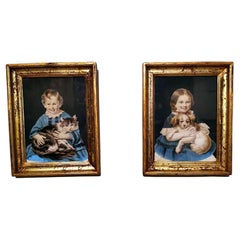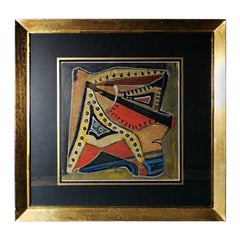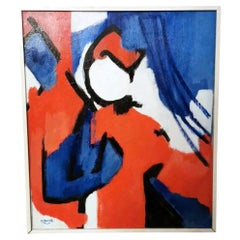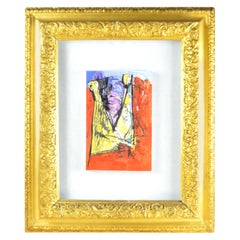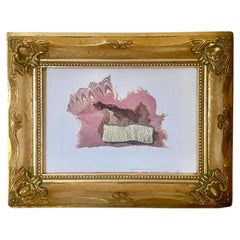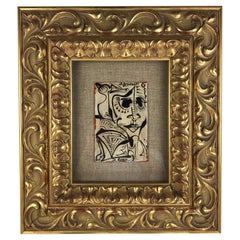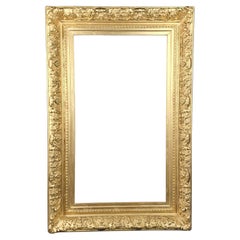Items Similar to Empire Frame Gold Leaf France with Russian Constructivism Painting
Want more images or videos?
Request additional images or videos from the seller
1 of 12
Empire Frame Gold Leaf France with Russian Constructivism Painting
$2,036.84
£1,516.30
€1,700
CA$2,789.97
A$3,103.05
CHF 1,620.32
MX$37,760.85
NOK 20,693.93
SEK 19,407.25
DKK 12,941.51
Shipping
Retrieving quote...The 1stDibs Promise:
Authenticity Guarantee,
Money-Back Guarantee,
24-Hour Cancellation
About the Item
We kindly suggest you read the whole description, because with it we try to give you detailed technical and historical information to guarantee the authenticity of our objects.
Our owner Beatrice Tronci, passionate art collector and established interior design, wanted to propose an article with a daring but engaging temporal contrast; a French gold leaf frame of 1855 and inside a painting of Russian Constructivism of 1925; two antithetical eras that in this case come together in an elegant object of great aesthetic effect, original and involving. The frame was treated with the technique of "leaf gilding": the "bolo Armeno" (red pigmented clay powder, mixed with glue) was spread, once dried, we proceeded with the application of very thin gold leaves; particular and elaborate workings present on the rest of the frame are obtained with the procedure called “pastiglia". The "pastiglia" processing, was born in Italy in the late 15th century. The "pastiglia" consisted of a mixture of gypsum, vegetable-gluey resins, honey, linseed oil, and often marble dust. On the wooden support a veil of cloth was glued and subsequently various states of "pastiglia" were spread, this was then imprinted or engraved or finely modeled, then the whole was allowed to harden and in the end, it was applied the gilding. After these processes, a light layer of purpurin was applied to the frame to uniform the surface of the wood. Handcrafted in France in 1855 during the reign of Napoleon III. Russian Constructivism painting painted with mixed media on paper; executed in Russia between 1925 and 1930. The artistic current of Constructivism is a cultural movement born in Russia in 1913, shortly before the revolution of 1917 and its strengths are optimism towards technological progress, machine, and industry. Constructivism proposes the evolution of art to exalt the new social class founded on the proletariat, in the need to realize a direct comparison between art and revolution. The works of the artists of this period are based on a strictly geometric composition and therefore devoid of objects. In Russia, Constructivism declines in Rationalism, while in the rest of Europe, it gradually falls back to classical positions to become extinct from 1933. Important exponents of Constructivism were Vladimir Tatlin, El Lissitskij, Aleksandr Rodcenko, and Lajos Kassak. Measures width cm.58, depth cm.5, height cm.68.For all our shipments we use special packaging materials (wooden crates, styrofoam, etc.) for maximum protection and safety of the objects.
- Dimensions:Height: 26.78 in (68 cm)Width: 22.84 in (58 cm)Depth: 1.97 in (5 cm)
- Style:Napoleon III (Of the Period)
- Materials and Techniques:
- Place of Origin:
- Period:
- Date of Manufacture:1855
- Condition:Wear consistent with age and use. The article is in good condition.
- Seller Location:Prato, IT
- Reference Number:Seller: 28251stDibs: LU4632224469792
About the Seller
5.0
Platinum Seller
Premium sellers with a 4.7+ rating and 24-hour response times
Established in 1977
1stDibs seller since 2019
285 sales on 1stDibs
Typical response time: <1 hour
- ShippingRetrieving quote...Shipping from: Prato, Italy
- Return Policy
Authenticity Guarantee
In the unlikely event there’s an issue with an item’s authenticity, contact us within 1 year for a full refund. DetailsMoney-Back Guarantee
If your item is not as described, is damaged in transit, or does not arrive, contact us within 7 days for a full refund. Details24-Hour Cancellation
You have a 24-hour grace period in which to reconsider your purchase, with no questions asked.Vetted Professional Sellers
Our world-class sellers must adhere to strict standards for service and quality, maintaining the integrity of our listings.Price-Match Guarantee
If you find that a seller listed the same item for a lower price elsewhere, we’ll match it.Trusted Global Delivery
Our best-in-class carrier network provides specialized shipping options worldwide, including custom delivery.More From This Seller
View All20th Century Constructivist Mixed Technique Russian Painting
Located in Prato, Tuscany
We kindly suggest you read the whole description, because with it we try to give you detailed technical and historical information to guarantee the authenticity of our objects.
20th-century constructivist mixed technique Russian painting...
Category
Vintage 1920s Russian Modern Paintings
Materials
Paper
Regnier, Bettanier, Morlon, French Color Lithographs With Period Gold Leaf Frame
Located in Prato, Tuscany
We kindly suggest you read the whole description, because with it we try to give you detailed technical and historical information to guarantee the authenticity of our objects.
Parti...
Category
Antique Mid-19th Century French Napoleon III Picture Frames
Materials
Wood, Paper
Mixed Technique Russian Constructivism Picture on Cardboard
Located in Prato, Tuscany
We kindly suggest you read the whole description, because with it we try to give you detailed technical and historical information to guarantee the authenticity of our objects.
Russian Constructivism...
Category
Mid-20th Century Russian Modern Paintings
Materials
Other
French Symbolic Expressionism Oil Painting Depicting French Revolution
Located in Prato, Tuscany
We kindly suggest that you read the entire description, as with it we try to give you detailed technical and historical information to ensure the authenticity of our objects. Painting oil painting on canvas is made with mixed technique brush and spatula; the author used traditional brushes for a first draft giving shape to the whole drawing with an expert, loose wrist play and with sure and decisive brushstrokes; the representation, in this case, is not a pure exercise of virtuosity, in fact, the author communicates us his intimate essence manifesting it through the language of colors, shapes, and composition. The artist finished his work with the technique of spatula painting, named after the protagonist's instrument, redistributing the colors densely and consistently, making the painting take on a special body and depth. The painting is signed but we are unable to give definite information about the author, however, we confirm its extraordinary aesthetic and engaging vividness; the painting was made in 1989 in the author's studio in Paris whose intentions were to celebrate the 200th anniversary of the French Revolution (1789). The painter was inspired by both French Expressionism and Symbolism; Expressionism exalts the emotional value of art; it is the artist's desire to communicate inner feelings, while with Symbolism, painters tend to go beyond the objective representation of reality to focus instead on the subjective vision, in which inner feelings, emotions, and experiences are evoked above all. Our painting is overflowing with the symbolism of the French Revolution; it is practically an evocative essence of it. This important and overwhelming historical event is powerfully present in the soul of the artist who wanted to overbearingly communicate to us his deepest emotions by transposing them entirely in the painting with strong and vivid colors, he did not want to simply allude or hint but to express, indeed "shout" his own deep interiority. In his intentions, the painting schematically and symbolically represents a standard-bearer of the French Revolution wearing the classic "Phrygian" hat. The author used only the three colors white, red, and blue that characterized the flags of the French Revolution; they were the new banners, which opposed the traditional emblem of the monarchy, the lilies on a white field. Three were the colors because three were the goals of the Revolution: liberty, equality, and fraternity, and they represented the three classes into which French society of the time was divided: the clergy (blue), the nobility (white), and the third state (red). The "Phrygian" cap (Latin for pileus) painted in red in the painting also has a high symbolic value, In Roman times it was worn by the " freedmen" to show that they were now freed slaves but in the French Revolution it became the very symbol of Liberty; a similar cap was worn by the freed Marseilles convicts in 1792, and was the symbol of the Jacobins during the French Revolution. Due to this fact, in addition to its historical meaning of freedom, it was later adopted as a symbol of the revolution itself, a symbol immortalized on the "Marianne," the very emblem of France, in Eugène Delacroix's famous painting "Liberty Leading the People...
Category
Late 20th Century French Modern Paintings
Materials
Canvas, Wood
Simon Thomassin French Print " La Gloire De La France" Etched with Wooden Frame
By Simon Thomassin
Located in Prato, Tuscany
We kindly suggest you read the whole description, because with it we try to give you detailed technical and historical information to guarantee the authenticity of our objects.
Beautiful and meticulously detailed etching with sober wooden frame; the paper work, "La Gloire de la France", was made by the famous French engraver Simon Thomassin (Troyes 1665-Paris 1733) in 1724, he made the drawing inspired by an elaborate and particular sculpture, made for the gardens of Versailles, between 1681 and 1683 by Pierre Mazeline (1632-1708) important French neoclassical artist; In the inventory of the Garden in 1706-1708, the statuary group is described as follows: "A figure representing Glory seated on a cloud placed on a celestial globe, surrounded by trophies of arms, with the right arm half raised, holding a laurel wreath, and, with the left, a pyramid. The names of the two artists are imprinted on the print itself. Pierre Mazeline was a very prolific and refined sculptor of recognized talent, he is also the author of other statues in the gardens of Versailles as the "Apollo of Belvedere and "Europe"; he also executed the equestrian statue of Louis XIV...
Category
Antique 1720s French Neoclassical Prints
Materials
Wood, Paper
Napoleon III Style Large Oil On Canvas French Subject Calliope Gold Background
Located in Prato, Tuscany
We kindly suggest that you read the entire description, as with it we try to give you detailed technical and historical information to ensure the authenticity of our objects. The fol...
Category
Antique Late 19th Century French Napoleon III Paintings
Materials
Canvas, Wood
You May Also Like
Midcentury Figural Abstract Painting In Antique Gilt Frame
By Lynn Chadwick
Located in St Annes, Lancashire
Wonderful figural abstract painting.
Artist unknown.
In the style of the very fashionable artist Lynn Chadwick
Lovely bright colors.
Gouache on ca...
Category
Vintage 1950s English Mid-Century Modern Paintings
Materials
Paper
Gilt Wood Framed Contemporary Collage Painting
Located in Round Top, TX
Lovely and interesting mixed media collage, composed of richly textured handmade papers arranged in a balanced abstract composition. The work is artist-signed and framed into a 1960s...
Category
Late 20th Century American Post-Modern Contemporary Art
Materials
Wood, Paper
Modern Surrealist Painting by Alexander Gore Picasso Inspired Painting Certified
By Alexander Gore
Located in Miami, FL
Modern Surrealist Painting by Alexander Gore, Pablo Picasso Inspired Painting Certified
This is an original painting titled "The Big Bear" in the manner of the great Pablo Picasso. ...
Category
21st Century and Contemporary American Mid-Century Modern Contemporary Art
Materials
Paint, Giltwood
Large Napoleon III Frame In Wood And Gilded Stucco
Located in BARSAC, FR
Large Napoleon III frame in wood and gilded stucco with rich and generous decoration of foliage and flowers.
Very thick and solid.
French work from the second half of the 19t...
Category
Antique Mid-19th Century French Napoleon III Picture Frames
Materials
Stucco, Wood
20th Century gilded wooden painting frame, Belgium
Located in Meulebeke, BE
Belgium / 1960 / Painting Frame / wood / Mid-century / Vintage
Decorative wooden gilded painting frame in baroque style. Crafted in wood in the 1960s in Belgium. With beautiful clas...
Category
Vintage 1960s Belgian Mid-Century Modern Picture Frames
Materials
Wood
Early 19th Century French Rectangular Gold Gilt Wood Art Frame
Located in Haddonfield, NJ
As found in the Provence region this wooden rectangular frame has fantastic gilt and patina. Add some vintage charm to your favorite water color, print or oil painting with this attr...
Category
Antique Early 19th Century French French Provincial Picture Frames
Materials
Wood, Paint
More Ways To Browse
Italian Gold Leaf Frame
Russian Revolution
Seay Turner
Stanley Rose
Turner Wall Accessories Vintage
Turner Wall Accessory Vintage
Turner Wall Accessory
William Hunter Wood
William S Coleman
Woodland Of California Furniture
19th Century Indian Silk Painting
19th Century Theorem
Alejo Palacios
Alexei Harlamoff
Andreas Marko
Antique Wellington China
Blair Vintage Clothing
Colbys Antique Furniture
